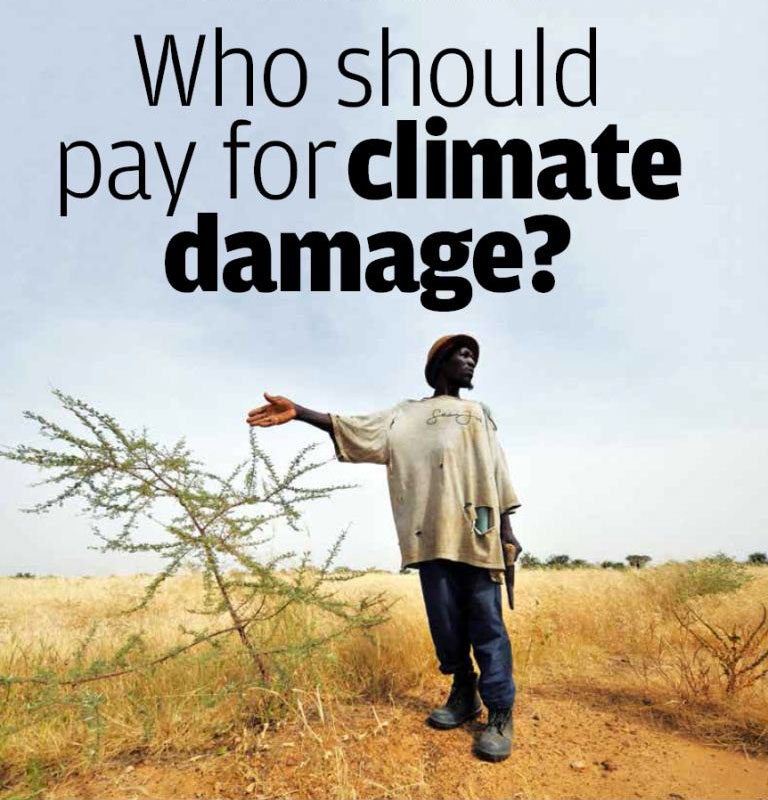WHO SHOULD PAY FOR CLIMATE DAMAGE? – Steve Rushton
guest blog by Steve Rushton
90 of the world’s largest monopolies and 20% of the world’s population are responsible for 2/3 of man-made greenhouse gas emissions. Steve Rushton, journalist and researcher, raises the question how to best tackle the injustices of climate change.
 The climate debt framework asserts those with the greatest responsibility for climate emissions should do most to rectify the situation. A debt audit analyses financial debts and creates awareness of any injustice, with the aim of cancelling illegitimate debts. Steve Rushton suggests these two ideas could be merged as a tool to tackle climate change.
The climate debt framework asserts those with the greatest responsibility for climate emissions should do most to rectify the situation. A debt audit analyses financial debts and creates awareness of any injustice, with the aim of cancelling illegitimate debts. Steve Rushton suggests these two ideas could be merged as a tool to tackle climate change.
Climate debt and financial debt are contrasting. Debt, as we usually think of it, always has to be paid back. It often expresses power, where the poorest owe the capitalist class: for example payday lending, global South debts, public debt from bailing out the banks. On the other hand, climate debts are frequently ignored. 90 of the world’s largest corporations are responsible for two-thirds of man-made greenhouse gases: they have massive climate debts, yet they continue to freely pollute and profit.
This year there are a lot of expectations with the Paris climate negotiations COP 21. But like the last 20 conferences the outcome will be heavily swayed by corporate lobbying, by the same capitalist firms that created the climatic crisis.
I suggest we need better tools to tackle the injustices of climate change: a climate debt audit could be a start.
The power of (financial) debt audits
Earlier this year, Speaker of the Greek Parliament initiated a Truth Committee on Public Debt. In May, it published its first findings, declaring much of Greece’s debt illegal and illegitimate. With Greece’s ongoing challenge to austerity, this committee’s work has the potential to lay the legal framework to end the unjust debts.
The debt audit is not first of a kind: A previous success story in fighting unjust debts was Ecuador. It was ravaged by corruption, poverty and instability in the early part of this century. But with the election of left wing Rafael Correa things changed. In 2008, a parliamentary committee officially declared part of the debt illegal. Ecuador took unilateral action to default on the debt – in effect millions of spending that was being wasted on debt interest repayments could instead fund hospitals, educations and welfare.
These audits come off the back of decades of movements against unjust debts. After many countries from the global South lost a decade of development following the 1980s debt crisis, social movements mobilised around the idea “Don’t Owe: Won’t Pay.” The concept is that odious, unjust or illegal debts should be scrapped: examples include debts that never benefitted the population, such as expensive projects that never materialised or weapons used to suppress the population. Also many of the IMF and World Bank loans given to avoid countries defaulting would fit in this category, as the conditions attached only widened inequality and poverty.
When the financial system imploded in 2008, the same neoliberal principles that created the financial crisis were applied again: as if drinking more poison has ever made a patient better. Banks were bailed out. Debts were socialised from the private to the public. The financial crisis became a public crisis.
Also the Greek audit comes off the back of social movements: from 2011, there has been a campaign for a citizen led debt audit to analyse the dodgy deals, the bailouts, the corruption, the short-selling and predatory capitalist attacks. Crucially, it was also about raising awareness: there is no point just working out how unjust a situation is. You need the public onside to force change.
How about a climate debt audit?
A climate debt audit would assert the largest polluters ‘Do owe: should pay’.
Fortunately, a large extent of the work towards a climate debt audit has already been started. A key document is the Peoples Agreement on Climate Change, a collaboration of Bolivia with civil society in 2011. It asserts how the rich North should be made to pay for the emissions they created. 20% of the world’s population created 70% of these greenhouse gases.
Studies show that the carbon footprints rise with wealth, and that the super-rich and super-polluters also pump money into side-lining effective climate change measures.
The target then becomes two-fold. One to set out who has the largest carbon footprints from profiting from climate change. And secondly to build global momentum to force the largest emitters to stop spewing carbon into the atmosphere and use the proceeds to assist others who they are indebted to. This assistance should both mitigate against the impacts of climate change and enable others to shift into a renewable future without polluting the atmosphere further.
———————————-
Steve Rushton is a journalist and researcher, writing for new media platforms including Contributoria, Occupy and Debt Resistance UK. On the subject of climate debt he has recently published “Building the climate movement: is another world possible?“ and “To tackle climate change we need to challenge the power of billionaires“. His next Contributoria proposal aims to explore how to tackle climate change we need to recognise and rectify the massive military carbon footprint. This is for a special edition of Contributoria co-edited by Vivienne Westwood.




No comments yet